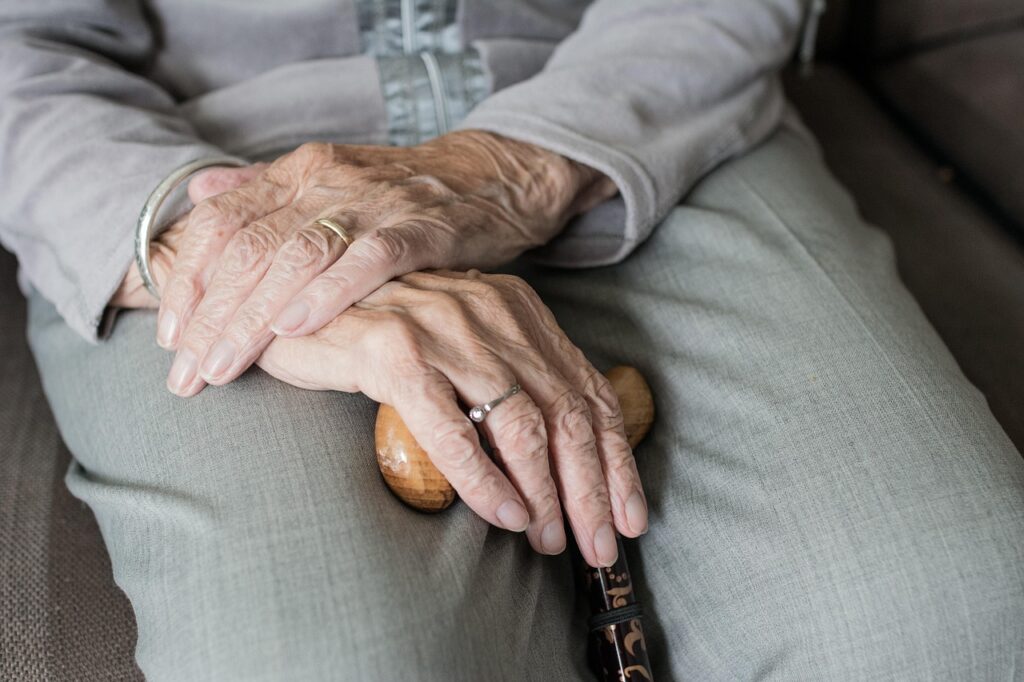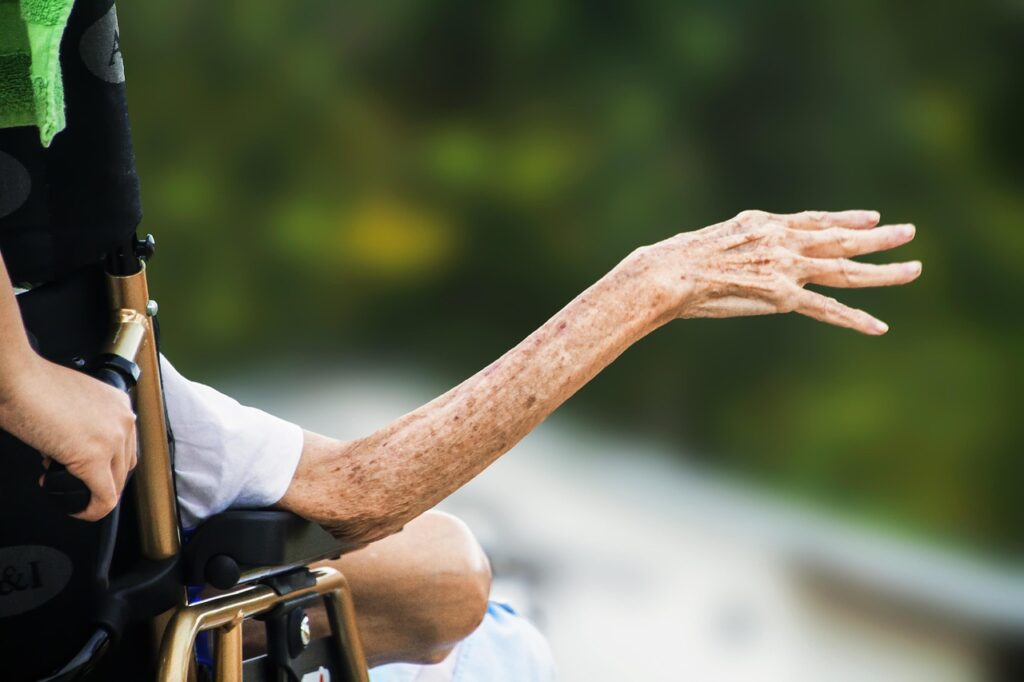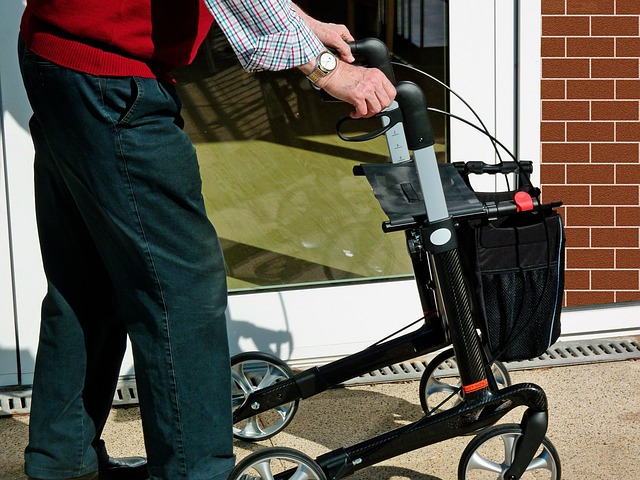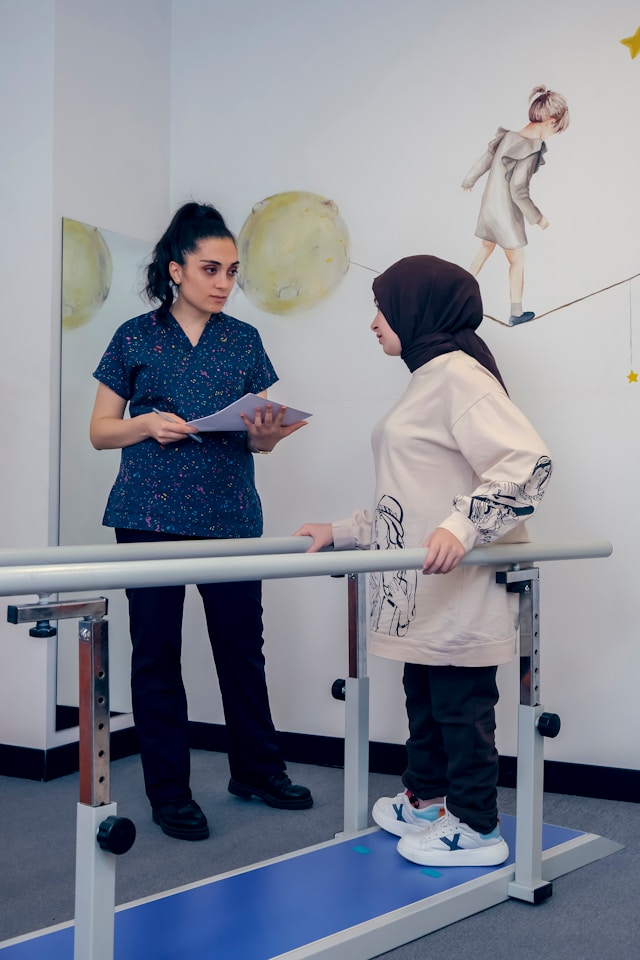
How to Tell When Parkinson’s Is Getting Worse
Watch for subtle changes in movement and daily routines. As Parkinson’s progresses, tremors may intensify, rigidity can increase, and walking may become slower or more unstable, especially whilst turning or transitioning.
Many people also experience “freezing” episodes, where they feel momentarily stuck on the spot. No longer being able to rely on medication in the same way is another clear sign that parkinsons is worsening.
When symptoms return more quickly between doses, it suggests that the disease is advancing. Likewise, difficulties with speech or swallowing, such as slurred words, coughing during meals, or food feeling blocked in the throat, are common when motor symptoms begin to interfere with vital functions.
- Non-motor symptoms are often less visible but just as important. Memory lapses, reduced concentration or increased confusion may suggest Parkinson’s dementia is developing. Mood changes, depression, anxiety or apathy can intensify alongside motor decline, making emotional wellbeing fragile.
- Sleep disturbances, like waking frequently at night or acting out dreams, may also surface as the disease progresses.
- Constipation, urinary urgency, sudden drops in blood pressure when standing, and severe fatigue can also build up, often reflecting advancing autonomic dysfunction.
In later stages, many people with Parkinson’s struggle to carry out daily tasks independently. Dressing, washing, eating, and even transferring from bed to chair may require help. Uncontrolled falls become more common due to persistent balance issues and postural instability. Swallowing concerns, such as aspiration and pneumonia, may occur, and psychosis, such as hallucinations or delusions, can emerge, often triggered by medication side effects.
At this point, care needs may exceed what’s safe to manage at home, and families may find themselves considering specialist complex care options.
When Should Someone With Parkinson's Move into a Care Home?
It can be a difficult decision, but often signals lead the decision and realisation that the time has come, including frequent falls despite home adaptations, regular choking or coughing while eating or drinking or a growing inability to manage medications accurately throughout the day.
These challenges make the need for constant professional supervision more pressing than ever. Cognitive changes can add an emotional burden that wears down family carers. When daily interaction becomes fragmented by confusion, anxiety or frustration, the supportive structure of a care home can lighten the load on both the person with Parkinson’s and their family.
In a complex care home, a registered nurse’s presence ensures medications are correctly timed, swallowing is monitored, and falls are managed rapidly and effectively.
Specialist therapy helps maintain mobility and safety, while emotional support and mental stimulation reduce loneliness and apathy. Advanced symptoms like hallucinations, incontinence or severe motor impairment are managed with care professionals rather than left to struggling family caregivers. This kind of environment doesn’t take away independence, it embeds it in a framework of safety, dignity and tailored care & support.



How a Complex Care Home Supports Quality of Life
A specialist Parkinson’s care home focuses on the whole person, not just their symptoms. Around-the-clock nursing care means that medication adjustments, swallowing strategies, and gentle movement support are always available.
Regular physiotherapy and occupational therapy help residents maintain remaining mobility, using targeted exercises and mobility aids to maximise independence and reduce preventable falls.
Speech and language support helps with swallowing safety and voice clarity, lowering the risk of aspiration, the most common respiratory complication in advanced parkinsons.
Life in a care home extends beyond clinical needs. Staff are trained to use external cues during walking to reduce freezing and to help residents structure their day around strengths and preferences. Social connection, meaningful activities and access to mental health support help keep loneliness, depression or anxiety at bay.
Having a level of consistency and expertise means families often find they can focus on quality time with their loved ones, rather than their care needs, reinforcing the emotional bonds that matter most.
Frequently Asked Questions
How can I recognise that home support isn’t enough anymore?
When small adaptations aren’t stopping falls, medication routines become overwhelming and eating or hygiene become risky, ongoing supervision is a strong sign that a care facility may be necessary.
What makes a specialised care home better than regular assisted living?
It’s the combination of neurological knowledge, skilled therapy, comprehensive nursing care, and an environment all tailored to Parkinson’s that ensures safety, promotes mobility, supports mental clarity, and helps maintain dignity at every stage.
What are nursing care plans for Parkinson’s disease, and why are they important?
A nursing care plan for Parkinson’s disease is a structured guide created by nursing professionals to address an individual's unique physical, emotional and medical needs. These plans prioritise safety, independence, therapy and medication management, ensuring that every aspect of wellbeing is proactively managed from preventing falls and supporting mobility to addressing swallowing difficulties and mood changes.
What does a nursing care plan for Parkinson’s typically include?
At its core, a nursing care plan includes clear nursing diagnoses, for example, risk of falls, impaired verbal communication or dysphagia (swallowing problems), each paired with specific goals, ongoing assessments and tailored interventions. A plan might encourage safe movement with assistive devices, timed medication administration, posture training, speech support and referrals to physiotherapy or occupational therapy.
How does a care home use these plans to improve quality of life?
In a specialist care home, nursing care plans for Parkinson’s disease are living documents that guide daily routines and therapeutic activities. The care and nursing team follow them to support mobility, speech, nutrition and emotional wellbeing. For example, precision in medication timing helps manage tremors and rigidity, while regular therapy and posture exercises help reduce falls and maintain strength. Speech and swallowing support help prevent choking and aspiration pneumonia, enhancing both safety and dignity.



Thinking Ahead: Steps to a Smooth Transition
Planning can ease the emotional weight of any move into a care facility.
Before considering a care home, arrange professional assessments with Neurologists and Occupational Therapists, who can advise on disease stage and current home safety.
Then arrange visits to care homes that specialise in complex neurological conditions, asking about staff training, therapy programmes, medication protocols and environmental adaptations such as safe dining plans.
It's important to keep communication open, arrange regular family and health care professional meetings, share updates on wellbeing and be part of decisions on therapies or future care plans.
A thoughtful care home transition doesn’t diminish independence, it secures it. In a supportive community, even as Parkinson’s disease worsens, life can remain meaningful, connected, and dignified.
At Dee View Court Neurological Care Centre, we specialise in expert support for people living with Parkinson’s. Our experienced team delivers highly personalised care focused on dignity, independence and personal choice. Whether someone is here for long-term residential care, rehabilitation, or respite support, they find comfort in a calm, welcoming setting designed with accessibility in mind. Every care plan is co-created with the resident and their loved ones, reflecting their routines, preferences and goals in a truly person‑centred environment.
If you’re exploring care options for a loved one or would simply like to find out more, our friendly team at Dee View Court is ready to help. We’d be pleased to arrange an informal conversation or a visit, where you can meet the team, view our facilities, and learn more about how we support individuals living with Parkinson’s.
